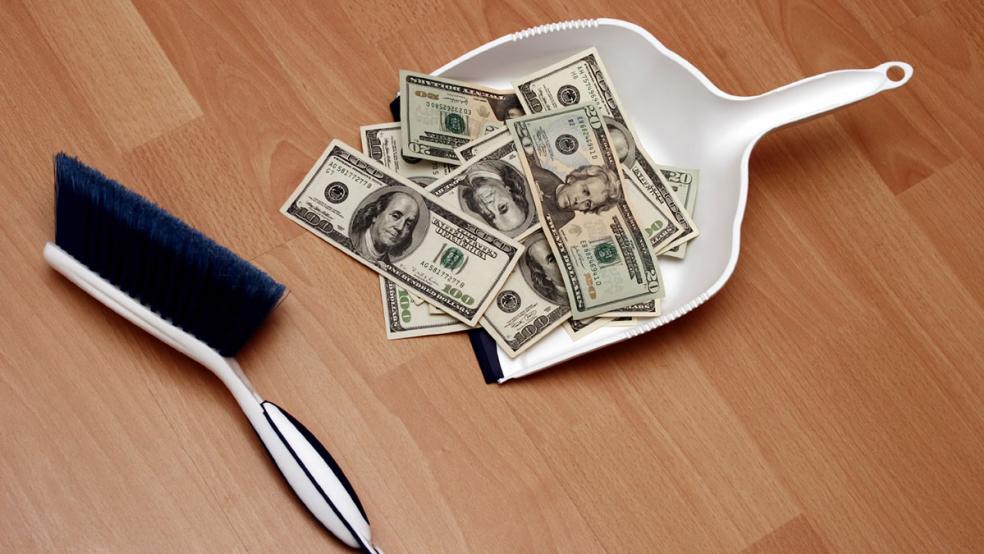Spring is the time to purge your closets, dust the window shades and power-wash the deck. But don’t neglect your personal finances as you clean the house. A careful review of your spending can result in some serious savings.
Imagine what you can do with your found money.
“You can accelerate debt payments, increase retirement savings to your 401(k), invest in a Roth IRA or 529 (college savings plan),” says Marguerita Cheng, CEO of Blue Ocean Global Wealth in Potomac, Maryland. “Additional monthly savings and investments of $50 [to] $300 can make a huge difference over 20, 30 or even 40 years. It's important to be mindful with your money.”
Here are seven places to look as you spruce up your finances this spring.
1. Reduce recurring bills.
Look over your cellphone, cable, satellite and Internet bills and see if you’re paying more than you need to. Ask for promo rates or cut back on your plan if you don’t need all the bells and whistles. Cheng had one client who reduced his cell phone bill by $25 a month — that’s $300 a year.
Related: How to Become an Everyday Millionaire … From Those Who’ve Done It
2. Eliminate unused services.
Get rid of services that you don’t use. Cheng’s client cut out his XM Satellite radio service, saving $30 a month (or $360 for the year). Reconsider Netflix or Hulu if you have overlapping services like premium cable or Amazon prime (or vice versa), saving anywhere from $8 to $12 a month. Last, cut out your gym membership if you rarely use it, says Ryan Fuchs, a financial planner at Ifrah Financial Services in Frisco, Texas.
3. Find car insurance savings.
Shop around for the lowest car insurer and, when you find it, pay for your policy on a semi-annual or annual basis instead of monthly. Most insurers will offer discounts on the bulk payments, which adds up to between $10 and $20 a month. (Fewer payments lower the company’s administrative costs.) While comparing insurance policies, don’t forget to check with your homeowners insurance to see if there’s a multi-line policy, which can knock off around 15 percent off the total costs.
4. Wipe out bank fees.
If you’re paying for a checking account, stop. Ask your bank if there is a way to avoid the fee, such as keeping a minimum in the account. Cheng’s client was able to get free checking with direct deposit, saving him $12 a month. To avoid overdraft fees, link your checking account to your savings account or a line of credit.
Related: 9 Savvy Ways to Build Wealth
5. Cash in your credit card points.
Check your points or miles balance on your credit card and cash them in. Make sure to get the most bang for your buck, though. For example, some rewards are worth more when used toward travel reservations through the credit card than a statement credit. Other cards may offer gift cards at a higher value. Check your credit card’s rewards website for the details.
6. Go green.
Switch out your incandescent lights for CFL or LED ones, says Fuchs. They may cost more upfront but the savings will add up. A $6, energy-efficient 60-watt bulb will pay for itself in a year, according to Energy Star. Each bulb can save between $30 and $80 in electricity costs over the bulb’s lifetime. For the average house with 50 light bulbs, that’s $1,500 to $2,400.
7. Maximize your paystub.
Are you getting the full 401(k) match from your employer? If not, increase your contributions and boost your retirement savings. Otherwise, you’re not taking free money. Take advantage of any parking and transit benefits your employer offers by dumping pretax dollars into those accounts, instead of paying those expenses out-of-pocket. And if you had a large tax refund this year, adjust your W-4 to reduce the taxes withheld from each paycheck, says Theresa Rosen, a wealth manager at Prudence Financial in Sudbury, Massachusetts. “It gives extra money each pay check, ideally for saving or debt pay-down,” she says.





